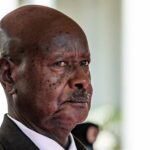
South Africa security on high alert after Zuma parole revoked
Published on December 18, 2021 at 7:23 AM by Chisomo Kambale
South Africa’s security agencies are on high alert to quash any possible disturbances following the revoking of former President Jacob Zuma’s medical parole.
The Gauteng High Court on Wednesday said Mr Zuma was unlawfully granted parole and should be returned to jail.
The former Head of State was in July jailed for 15 months for contempt of court after he refused to obey summons to appear before the Judicial Commission of Inquiry into Allegations of State Capture.
But he served just two months of his sentence at Estcourt Correctional Centre in KwaZulu-Natal before being released on medical grounds.
His initial imprisonment sparked violent protests in Gauteng and KwaZulu-Natal.
An estimated R50 billion ($3.1 billion) worth of property and infrastructure was destroyed during the unrest.
Incarcerating the 79-year-old former President again has stoked fears of another wave of disturbances.
South Africa has been divided by the court’s ruling and the Department of Correctional Services said they would appeal against Mr Zuma returning to prison.
The department said that after studying the decision to send Mr Zuma back to jail, they are “convinced that another court may arrive at a different conclusion.”
Some branches of the ruling African National Congress are also against the court’s judgment, while some civic organizations have welcomed the development.
“The members of the South African police, including all the law enforcement agencies as a country, have learned their lessons last July, and the experiences gained from there will be used and utilized to make sure that South Africa remains safe, stable and calm, and all people in South Africa protected, together with their properties,” Police Minister Bheki Cele said on Thursday.
“To make the preparations that the responses and reactions are much better this time, and we believe that they are on the ground in preparation for that as we speak.”
Justice and Correctional Services Minister Ronald Lamola warned against “inflammatory statements” that incite violence.
“It is important that we allow the due processes of the law to take its course. The parties themselves are engaging on the matter in the court processes,” Mr Lamola said.
“We need to be as calm as possible and allow all the necessary processes of due process of the law to unfold, as in terms of our architecture of a constitutional democracy.”
It took the deployment of the South African National Defence Forces to quell the July unrest.
The latest ruling on Mr Zuma comes as there have already been sporadic incidences of haulage trucks being attacked on major highways.
Soldiers are already on the ground, manning toll roads and toll gates.
“That decision was taken because we cannot afford a situation as a country where trucks block very strategic economic routes, which not only affect South Africa but affect the whole of SADC. We will not hesitate, if we are approached, to be on standby,” said Minister of Defence and Military Veterans, Thandi Modise.
The latest developments come as President Cyril Ramaphosa is in isolation after testing positive for Covid-19.


